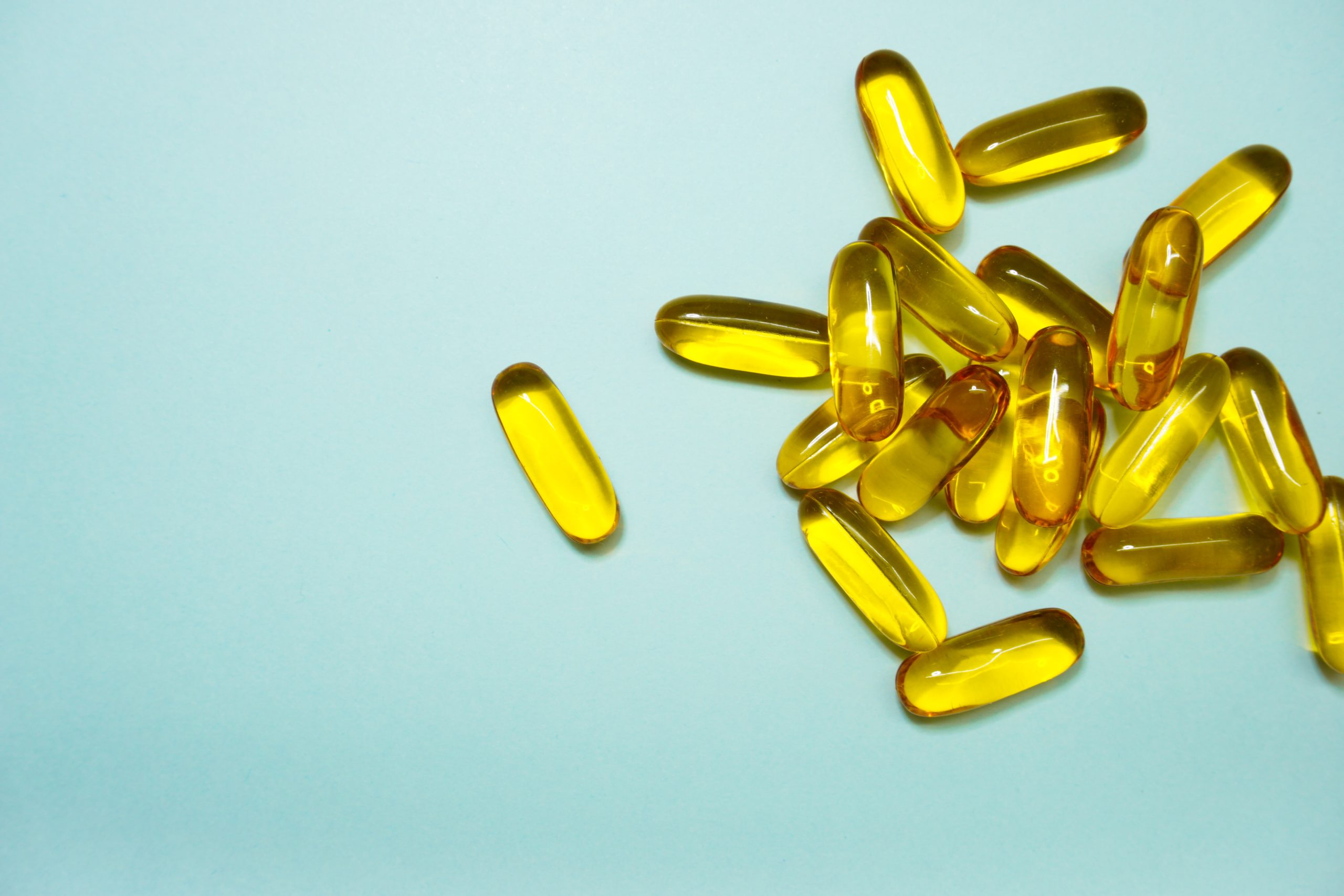Curious about what N-acetyl-L-cysteine is used for? Look no further. This article is here to give you all the information you need. Discover the incredible benefits of N-Acetyl L-Cysteine, a powerful natural antioxidant and detoxifier that can enhance your overall health and well-being. From fighting free radicals to supporting liver function and boosting your immune system, N-Acetyl L-Cysteine (NAC) has got you covered. So, if you’re ready to improve your health, keep reading to find out what N-acetyl-L-cysteine is used for.
1. Fighting Free Radicals
1.1 How Free Radicals Affect the Body
Free radicals are highly reactive molecules that can cause damage to cells and tissues in your body. They are produced as byproducts of normal bodily processes, as well as from exposure to environmental toxins such as pollution, cigarette smoke, and radiation. When free radicals accumulate in your body, they can lead to oxidative stress, which is associated with various health issues including aging, chronic diseases, and inflammation.
1.2 The Role of N-acetyl-L-cysteine in Fighting Free Radicals
N-acetyl-L-cysteine (NAC) is a powerful antioxidant that can combat the harmful effects of free radicals. It works by neutralizing these reactive molecules and preventing them from causing damage to your cells. NAC also helps regenerate other antioxidants in your body, such as glutathione, which further enhances its ability to fight against oxidative stress. By incorporating NAC into your daily routine, you can provide your body with the support it needs to combat free radicals and maintain optimal health.
2. Supporting Liver Function
2.1 The Importance of Liver Health
The liver plays a vital role in detoxifying your body and removing harmful substances. It metabolizes drugs, filters toxins from the blood, and produces bile, which aids digestion. However, factors such as poor diet, excessive alcohol consumption, and certain medications can impair liver function and lead to conditions like fatty liver disease and liver cirrhosis.
2.2 How N-acetyl-L-cysteine Supports Liver Function
NAC has been shown to have a positive impact on liver health. As an antioxidant, it helps reduce oxidative stress in the liver, which can protect against liver damage. NAC also boosts glutathione levels, an essential antioxidant in liver function and detoxification processes. Additionally, NAC may improve liver function by supporting the regeneration of liver cells and promoting the breakdown of toxins. By incorporating NAC into your daily regimen, you can provide support to your liver and promote its optimal functioning.

3. Boosting Immune System
3.1 Understanding the Immune System
Your immune system is a complex network of cells, tissues, and organs that work together to defend your body against harmful pathogens, such as viruses and bacteria. A strong immune system is crucial for maintaining overall health and preventing infections and diseases.
3.2 N-acetyl-L-cysteine’s Impact on the Immune System
NAC has been found to have immunomodulatory effects, meaning it can help regulate and enhance immune system function. It promotes the production of certain immune cells, such as lymphocytes and natural killer cells, which play a critical role in fighting off infections and harmful substances. NAC also has anti-inflammatory properties, which can help reduce excessive inflammation in the body and support a balanced immune response. By incorporating NAC into your wellness routine, you can boost your immune system and enhance your body’s ability to defend against pathogens.
4. Promoting Respiratory Health
4.1 Respiratory Conditions and N-acetyl-L-cysteine
Respiratory conditions, such as chronic bronchitis, asthma, and chronic obstructive pulmonary disease (COPD), can significantly impact one’s quality of life. These conditions often involve inflammation, excess mucus production, and oxidative stress in the respiratory tract, which can lead to breathing difficulties and other respiratory symptoms.
4.2 How N-acetyl-L-cysteine Promotes Respiratory Health
NAC has been studied extensively for its beneficial effects on respiratory health. It acts as a mucolytic agent, meaning it helps break down and thin mucus, making it easier to cough up and clear from the airways. This property is particularly beneficial for individuals with conditions such as COPD and chronic bronchitis, where excess mucus can impede breathing. Additionally, NAC’s antioxidant properties can help reduce inflammation and oxidative stress in the respiratory tract, providing relief from respiratory symptoms. By incorporating NAC into your respiratory health regimen, you can support healthy lung function and promote better breathing.

5. Managing Mental Health Disorders
5.1 N-acetyl-L-cysteine and Mental Health
Mental health disorders, such as depression, anxiety, and obsessive-compulsive disorder (OCD), can have a significant impact on one’s well-being and daily functioning. Emerging research suggests that oxidative stress and inflammation may play a role in the development and progression of these disorders.
5.2 How N-acetyl-L-cysteine May Help with Specific Disorders
NAC has shown promising results in the management of various mental health disorders. It may act as an antioxidant and reduce oxidative stress, which can alleviate symptoms of depression and anxiety. Additionally, NAC’s ability to replenish glutathione levels in the brain may have a neuroprotective effect and support overall brain health. Studies have also suggested that NAC supplementation may improve symptoms in individuals with OCD by modulating glutamate, a neurotransmitter involved in OCD pathophysiology. While more research is needed, incorporating NAC into your mental health management plan may provide some relief and support for these conditions.
6. Supporting Cardiovascular Health
6.1 The Importance of Cardiovascular Health
Cardiovascular health is crucial for overall well-being. The heart and blood vessels play a vital role in supplying oxygen and nutrients to all parts of the body, and any disruption in their function can lead to serious health issues, such as heart disease and stroke.
6.2 N-acetyl-L-cysteine’s Impact on the Cardiovascular System
NAC has shown potential benefits for cardiovascular health. Its antioxidant properties may help reduce oxidative stress in blood vessels, which can contribute to the development of atherosclerosis and other cardiovascular conditions. NAC has also been found to improve endothelial function, which is essential for maintaining healthy blood flow and preventing the formation of blood clots. Additionally, NAC may have a positive effect on lipid profiles by lowering LDL cholesterol and improving the balance between good (HDL) and bad (LDL) cholesterol levels. By incorporating NAC into your cardiovascular health routine, you can support a healthy heart and blood vessel function.

7. Detoxifying the Body
7.1 The Role of Toxins in the Body
Toxins are substances that can harm your body, potentially leading to various health issues. They can come from the environment, food, medications, and even internal metabolic processes. Without proper detoxification mechanisms, these toxins can accumulate and cause damage to cells and organs.
7.2 How N-acetyl-L-cysteine Facilitates Detoxification
NAC plays a crucial role in detoxification processes in the body. It supports the production of glutathione, an essential antioxidant that aids in the neutralization and elimination of toxins. Glutathione acts as a potent detoxifier by binding to harmful substances, making them easier for the body to eliminate. Additionally, NAC may directly protect against toxins by scavenging free radicals and reducing oxidative stress. By incorporating NAC into your wellness routine, you can support your body’s natural detoxification processes and help eliminate harmful substances more effectively.
8. Treating Chronic Respiratory Conditions
8.1 Asthma and Chronic Obstructive Pulmonary Disease (COPD)
Asthma and COPD are chronic respiratory conditions that can cause significant breathing difficulties and affect daily activities. They are characterized by inflammation and airway obstruction, and management usually involves a combination of medications and lifestyle modifications.
8.2 N-acetyl-L-cysteine in the Treatment of Chronic Respiratory Conditions
NAC has shown promise in the treatment of chronic respiratory conditions such as asthma and COPD. Its mucolytic properties help break down and reduce the thickness of mucus, making it easier to expectorate. This can lead to improved lung function and reduced symptoms, such as wheezing and coughing. Additionally, NAC’s antioxidant and anti-inflammatory effects can help alleviate airway inflammation and reduce oxidative stress associated with these conditions. While it should not replace prescribed medications, incorporating NAC into your respiratory health management plan may provide additional support and improve overall lung health.
9. Supporting Fertility
9.1 Understanding Fertility Issues
Fertility issues can cause significant stress and emotional impact on individuals or couples trying to conceive. Various factors, such as hormonal imbalances, oxidative stress, and inflammation, can contribute to fertility problems in both men and women.
9.2 N-acetyl-L-cysteine’s Potential Effect on Fertility
NAC has shown potential in supporting fertility in both men and women. Its antioxidant properties can help reduce oxidative stress, which may benefit reproductive health by protecting sperm and egg cells from damage. NAC has also been found to improve ovulation and menstrual regularity in women with polycystic ovary syndrome (PCOS), a common cause of infertility. In men, NAC supplementation may improve sperm quality, motility, and concentration. While it is not a standalone treatment for fertility issues, incorporating NAC into your fertility support plan, alongside medical guidance, may provide some benefits and increase the chances of conception.
10. Combating Aging
10.1 The Effects of Aging on the Body
Aging is a natural process that affects every individual. As you age, various physiological changes occur in your body, which can lead to increased oxidative stress, inflammation, and decline in overall health. These changes can contribute to the development of age-related diseases and impact your quality of life.
10.2 How N-acetyl-L-cysteine May Combat Aging
NAC’s antioxidant properties make it a potential ally in combating the effects of aging. By reducing oxidative stress and inflammation, NAC may help protect against cellular damage, maintain organ function, and support overall vitality. Additionally, NAC’s ability to replenish glutathione levels can enhance the body’s natural defense mechanisms against age-related damage. While aging is a complex process influenced by various factors, incorporating NAC into your wellness routine may help support healthy aging and promote overall well-being.
In conclusion, N-acetyl-L-cysteine (NAC) offers a wide range of potential health benefits. From fighting free radicals and supporting liver function to boosting the immune system and promoting respiratory health, NAC shows promise in various areas of wellness. Additionally, it may have positive effects on mental health, cardiovascular health, detoxification, chronic respiratory conditions, fertility, and combating the effects of aging. As with any supplement, it is important to consult with your healthcare provider before incorporating NAC into your daily routine. By harnessing the potential of NAC, you can support your overall health, well-being, and longevity.







